
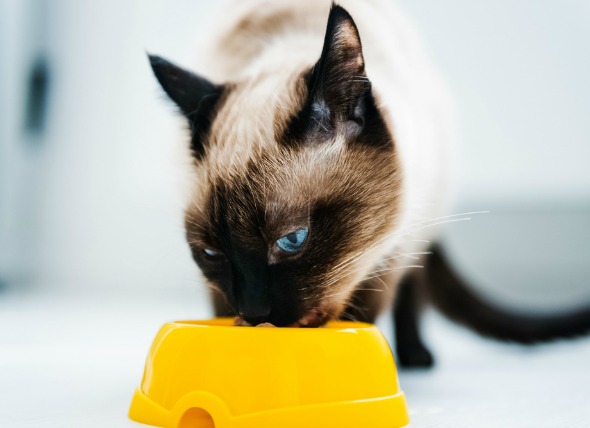
Polyphagia is the name of a medical condition in which a cat increases its food intake to the extent that it appears ravenous most or all of the time. It is also normally associated with polydipsia as well as polyuria.
This condition can be caused by different circumstances, and it is important to find out whether the cat’s increased food consumption is due to a psychological condition, or to a disease. Should the reason be a psychological problem, then it is likely that the cat has developed a learned behavior, which could lead to obesity.
However, if the underlying cause of your pet's increased food intake is due to a diseased state, then one of two physical effects will be observed: weight gain or weight loss.
Polyphagia can affect both dogs and cats. If you would like to learn more about how this disease affects dogs please visit this page in the PetMD pet health library.
The symptoms normally associated with polyphagia include:
If the polyphagic condition is related to some sort of behavioral problem, the underlying cause could be associated with the aging process. During old age, some cats are known to be extremely hungry. It is also possible that some form of medication that has been prescribed for your cat may be the reason for its increased appetite, and thus its polyphagia.
Polyphagia can also be the result of diabetes onset, because the cat's body often can not assimilate blood sugar when diabetic conditions are present. Blood sugar levels can be lowered as a direct result of insulin related tumors that your cat may have developed, and this will also have a direct impact on its appetite.
It may be possible that your cat has developed poor absorption of its food within the gastrointestinal system, leading to weight loss for various reasons, including inflammatory bowel problems, insulin deficiencies, or intestinal cancer. An inability to absorb food properly could cause your pet to lose valuable nutrients required for good health.
Your veterinarian will perform a thorough physical exam on your cat, and may also recommend blood tests, urine tests, radiographic imaging, organ tests, and an endoscopy.
When undertaking biochemical testing of the organs, it is possible to evaluate the functioning of vital organs like the liver and kidneys. It is worthwhile to have these tests performed on your cat, because any endocrine disorders related to insulin dysfunction will also be established, should they be present. Abnormally low blood sugar, known as hypoglycemia, may also be found, and this could be related to some forms of insulin-producing tumors that could affect the functioning of the pancreas.
A blood count will allow your veterinarian to examine the blood for the presence of infectious agents, and will also show whether your cat has developed anemia, or any inflammation in the vessels. Absence of these conditions may point to whether the increased appetite is due to a behavioral problem, or to a physical problem.
Your veterinarian may suggest urine analysis to evaluate whether or not your pet is losing excessive amounts of protein through its urine. A urine test will also show infection of the urinary tract, or infection of the organs involved in the waste process, as well as sugar dropped into the urine, which is commonly found in the urine of cats with diabetes.
Your doctor may also want to perform an examintaion by endoscopy, which uses a tube that is inserted through the cat's mouth and into the hollow cavity of the stomach (or other organ), so that a sample of tissue (biopsy) can be taken from the stomach and duodenum (small intestine).
Once the condition is properly diagnosed, your veterinarian will assist you in designing a care plan, so that you can manage the rest of your cat's care at home.
Conditions related to the gastrointestinal system may respond to a dietary change, or to oral medication. Should polyphagia be related to diabetes, daily insulin injections will be a required part of the home treatment.
If the diagnosis of polyphagia is due to behavioral problems, measures to control your cat's food intake will need to be put in place. Approaches that can be used to help your cat may include a high fiber diet with close supervision of food intake, while measuring food amounts into smaller servings throughout the course of the day (as opposed to two to three large meals) to help effectively control your pet's appetite.
Ensure that any prescribed medication is given at the correct times, and that the full course of medicine is dispensed to your cat.
Even after the condition has been resolved, you should continue to monitor your cat's food intake as part of a healthy weight and nutrition plan. Your veterinarian will be able to further help you to organize a lifelong diet plan for your cat.
Should polyphagia be caused through incorrect feeding habits, it is possible to prevent ongoing symptoms associated with this disorder by adjusting the cat's feeding routine so that overeating does not continue to occur.
If it is the result of a malfunction in your cat's body, you will need to maintain contact with your veterinarian, keep scheduled appointments for progress checkups, and make sure that you have an appropriate care plan in place for easy management at home.
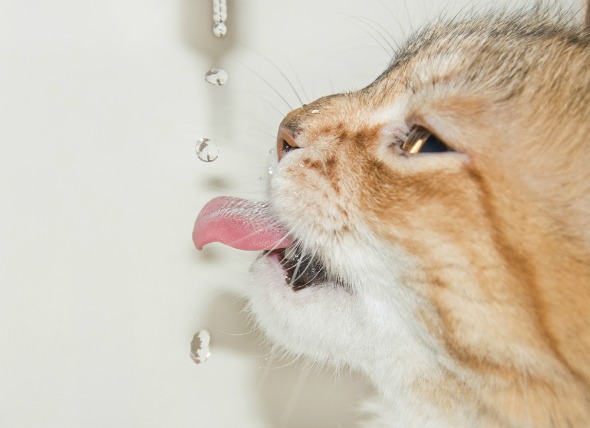 Diabetes with Ketone Bodies in Cats
Diabetes Mellitus with Ketoacidosis in Cats
The t
Diabetes with Ketone Bodies in Cats
Diabetes Mellitus with Ketoacidosis in Cats
The t
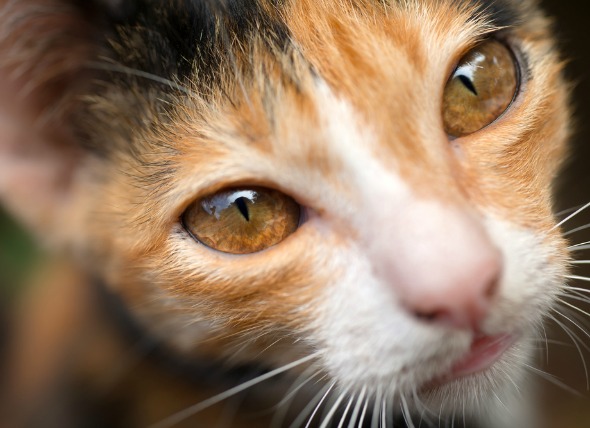 Eye Inflammation (Anterior Uveitis) in Cats
Anterior Uveitis in Cats
The uvea is the dark tis
Eye Inflammation (Anterior Uveitis) in Cats
Anterior Uveitis in Cats
The uvea is the dark tis
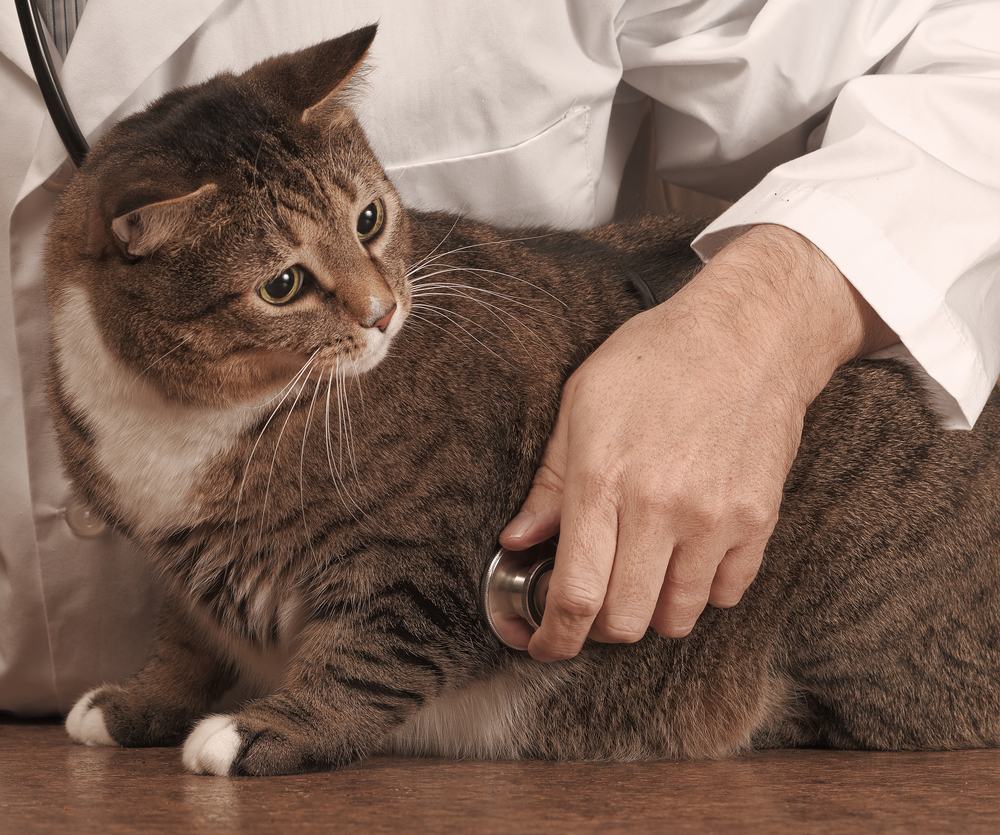 Excess Protein in the Cat's Urine
Proteinuria in Cats
While in some cases abnormall
Excess Protein in the Cat's Urine
Proteinuria in Cats
While in some cases abnormall
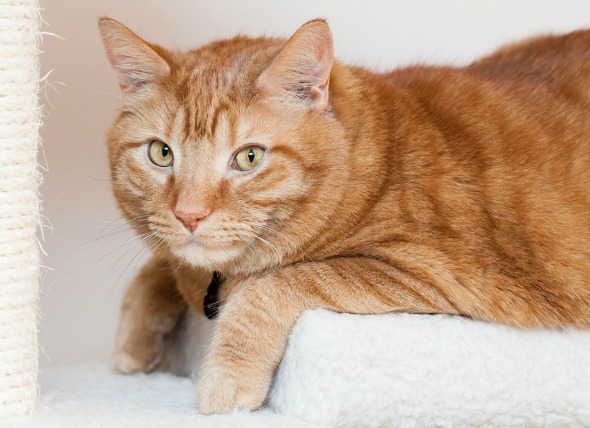 Fluid in Abdomen in Cats
Ascites in Cats
Ascites, also known as abdominal
Fluid in Abdomen in Cats
Ascites in Cats
Ascites, also known as abdominal
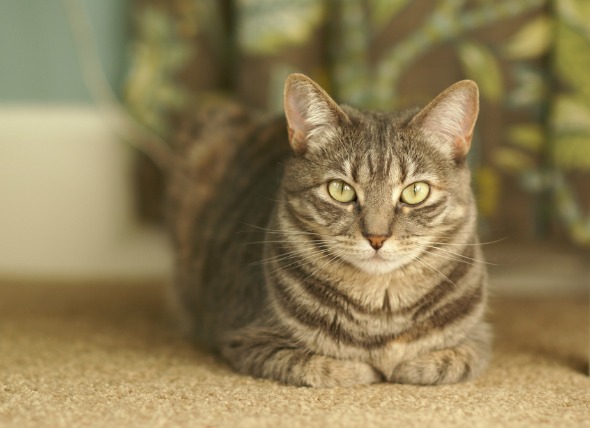 Parasitic Blood Infection (Haemobartonellosis) in Cats
Hemotrophic Mycoplasmosis (Haemobartonellosis) in Cats
&
Parasitic Blood Infection (Haemobartonellosis) in Cats
Hemotrophic Mycoplasmosis (Haemobartonellosis) in Cats
&
Copyright © 2005-2016 Pet Information All Rights Reserved
Contact us: www162date@outlook.com